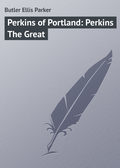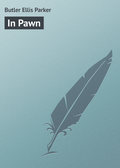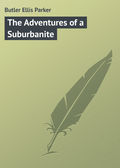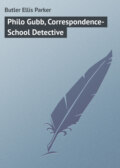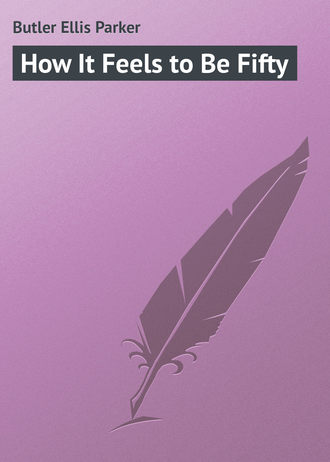
Butler Ellis Parker
How It Feels to Be Fifty
I have now a pretty fair working knowledge, and know what I want to do in that line. I need a lot of time for that; I don't expect to do any very great things at it until I really get some leisure – say when I am eighty or ninety years old – but in the meanwhile I want to pick up a few rarities now and then. To do that I'll have to make a little more money than I have been making, because I have reached a point where the stamps I need run into money rapidly.
And I expect, in the next twenty or thirty years, to spend quite a little on my fishing. After forty years of it I am just beginning to learn how to fish properly. And I want to grow some real flowers. I want to have a tulip bed that will draw people from a hundred miles and make them beg for bulbs. But I have n't been able to get at the tulip affair this year because I have been out touring the country as a platform humorist. There are a half-dozen other things I am planning to do; but all these are subsidiary to my writing, of course.
At fifty I feel that I am about ready to begin my life work as a writer. For the past few years, thirty or forty of them, I have been experimenting around and trying to get my bearings and learn what life really is. I have done some pretty raw, inexperienced stuff, but it has been worth while because a young fellow has to go through the experimental stage. It takes time to decide what one really wants to do, and how he wants to do it. But when a man is fifty, with a long life ahead of him and a fair notion of what he wants to do, he begins to be hopeful.
At fifty, I feel that I am about ready to begin writing the eight or ten novels I have been wanting to write. Amelia E. Barr was about fifty years old when she began writing novels, and she wrote about seventy of them after that. Richardson wrote "Pamela" – some call it the first modern novel – when he was fifty. Daniel De Foe turned to fiction only when he was fifty-five.
There are hundreds of writers who did all their work, or most of their best work, after fifty. Oliver Wendell Holmes was forty-eight when he wrote the "Autocrat of the Breakfast Table," his first great work. Longfellow wrote "Hiawatha" when he was forty-eight, and much of his best work followed. Whittier wrote "Snow-Bound" and "Maud Muller" at fifty-nine, and continued writing until he was seventy-nine. Tennyson was still writing at eighty-three. "Trilby" was written when Du Maurier was sixty; "Les Miserables" when Victor Hugo was sixty; "Kenilworth" when Scott was sixty, with sixteen novels following it. Reckoning a man's life by years is the biggest sort of flapdoodle. All of a man's worth-while living may come after he is fifty. Between fifty and fifty-one I may catch my biggest trout, and I expect to do it. After fifty I may write my best stories, and I mean to do it.
In my back yard is a huge white-oak tree. Some tree experts say it is three hundred and fifty years old, some say six hundred, and one has estimated it at eight hundred. It does not make a bit of difference to the tree. It is as young and enthusiastic when spring comes as it was when it was two years old. It puts forth leaves, grows new and tender twigs, bears sound acorns, shelters its colony of bird families, and holds one end of the clothesline just as well as it ever did.
It is a healthier, happier tree at six hundred years of age than thousands of pert young ten-year-olds, and is producing more and better oak leaves. If you went and asked it how it feels to be six hundred years old, it would say, "What do you mean, six hundred years old? What has that got to do with it?" A few hundred years one way or the other mean nothing to a sound, healthy white-oak tree. A few tens of years one way or the other mean nothing to a sound, healthy man.



